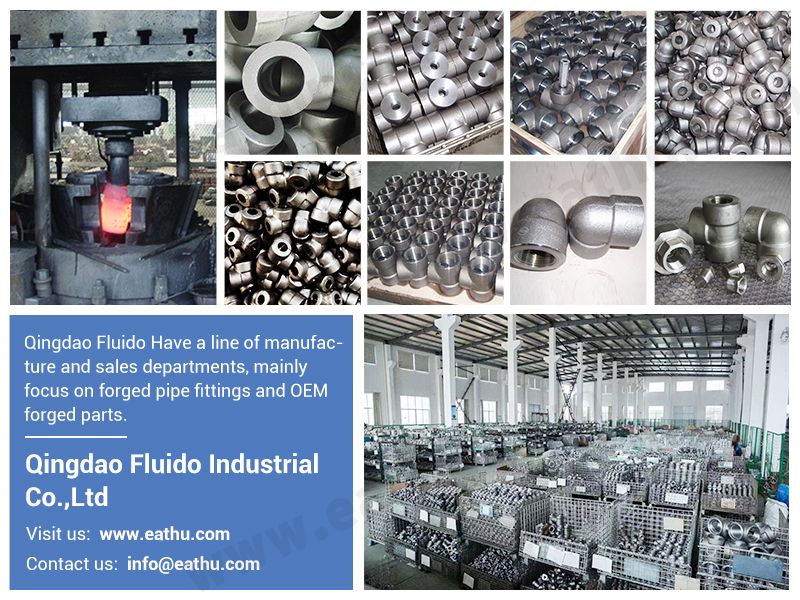Forged steel pipe fittings are a kind of pipe fittings, which are often used in pressure piping systems such as hydropower stations, mines, and petroleum. The forged fittings’ types are elbow, tee, cross, reducer, union, bushing, cap, plug. The connection method is threaded(TH) connection or socket welding(SW) connection, and the production process of forged steel pipe fittings is forging. According to the different size and pressure requirements, die forging, free forging and machining forming process are adopted.
1. Die forging: Due to the complex shape of tee, cross, elbow, pipe cap, etc., the production process with the highest production efficiency and yield is the die forging process. The billet is heated and then placed in a die for forging, where pressure causes the metal to flow and fill the cavity. Annealed to relieve stress after forging. The forged blanks are machined and deburred again, and finally threading or socket welding, depending on the customer's needs.
2. Free forging: It is generally used for large-sized forged steel pipe fittings above 2-1/2"(to 6”). The worker performs free forging to obtain an approximate shape, and then the machining worker performs machining processing to finally obtain the desired forging blank. Usually the unions and plugs in forged steel fittings use this process, and some large-sized caps and tees also use this process.
3. Machining and forming: For forged steel pipe fittings with simple shapes, such as large and small heads, cores, etc., metal bars are usually directly machined. However, it should be noted that forged steel fittings with 6000LBS and 9000LBS pressures cannot use this production process.
Qingdao Fluido industrial is a professional manufacturer and exporter of forged steel pipe fittings, with rich experience in forged steel pipe fittings and excellent quality and price, we are looking forward to your contact to start friendly cooperation. Our contact information is info@eathu.com, Skype/Wechat/Mob/WhatsApp:+86 13210153062
